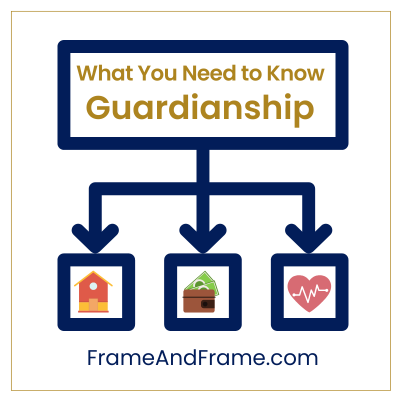In Maryland, guardianships are often necessary for individuals who are unable to care for themselves or make decisions due to mental or physical incapacity. In this article, we will discuss the reasons for guardianship in Maryland and the process of obtaining a guardianship and most importantly, what you need to know about guardianship in Maryland before you file.
 Reasons for Guardianships in Maryland
Reasons for Guardianships in Maryland
Obtaining a guardianship in Maryland is a complex legal process. However, there are several reasons why you may need to consider a guardianship in Maryland. This process can provide important options for making decisions on behalf of a person who:
- Age-related incapacity – As people age, they may become incapacitated due to physical or mental health issues, making it difficult or impossible for them to make important decisions about their care or finances.
- Disabilities – People with disabilities may need a guardian to make decisions on their behalf, particularly if they have a developmental or intellectual disability that impairs their ability to make decisions for themselves.
- Chronic illness – Individuals with chronic illnesses may require a guardian to make healthcare decisions on their behalf if they become incapacitated or unable to make decisions due to their illness.
- Substance abuse or addiction – Individuals with substance abuse or addiction issues may require a guardian to make decisions on their behalf if they become incapacitated due to their addiction or are unable to make decisions about their healthcare or finances.
The Process of Obtaining a Guardianship in Maryland
Before you pursue any type of guardianship in Maryland, you’ll want to seek sound legal guidance from an attorney with experience the legal aspects of Guardianship in Maryland. The process usually involves several steps, including:
- Filing a petition – The first step in obtaining a guardianship is to file a petition with the appropriate court. The petition must include detailed information about the individual who requires a guardian, including their name, age, and reason for the guardianship.
- Notification and hearing – Once the petition is filed, the court will schedule a hearing and notify all interested parties, including the individual who requires a guardian, their family members, and any other interested parties.
- Evaluation – The court may appoint an evaluator to assess the individual who requires a guardian and make recommendations to the court regarding the type of guardian needed.
- Appointment of a guardian – If the court determines that a guardianship is necessary, they will appoint a guardian and outline their powers and responsibilities. The court may appoint a guardian of the person, who is responsible for making decisions related to the individual’s care, or a guardian of the property, who is responsible for managing the individual’s finances.
- Ongoing oversight – Once a guardianship is established, the court will provide ongoing oversight to ensure that the guardian is fulfilling their responsibilities and acting in the best interests of the individual who requires a guardian.
Guardianships can be an important legal proceeding that can provide protection and support for individuals who are unable to make decisions for themselves. Whether due to age, disability, chronic illness, or substance abuse, Marylanders may need to think about guardianships for themselves or their loved ones.
If you are considering guardianship, it’s important to consult with an experienced attorney who can guide you through the process and ensure that the best interests of the individual who requires a guardian are protected. If you have questions, or would like to schedule a consultation, please contact Frame & Frame Attorneys at Law. We have been assisting our clients for over 70 years and will provide care and compassion as you begin this process.
